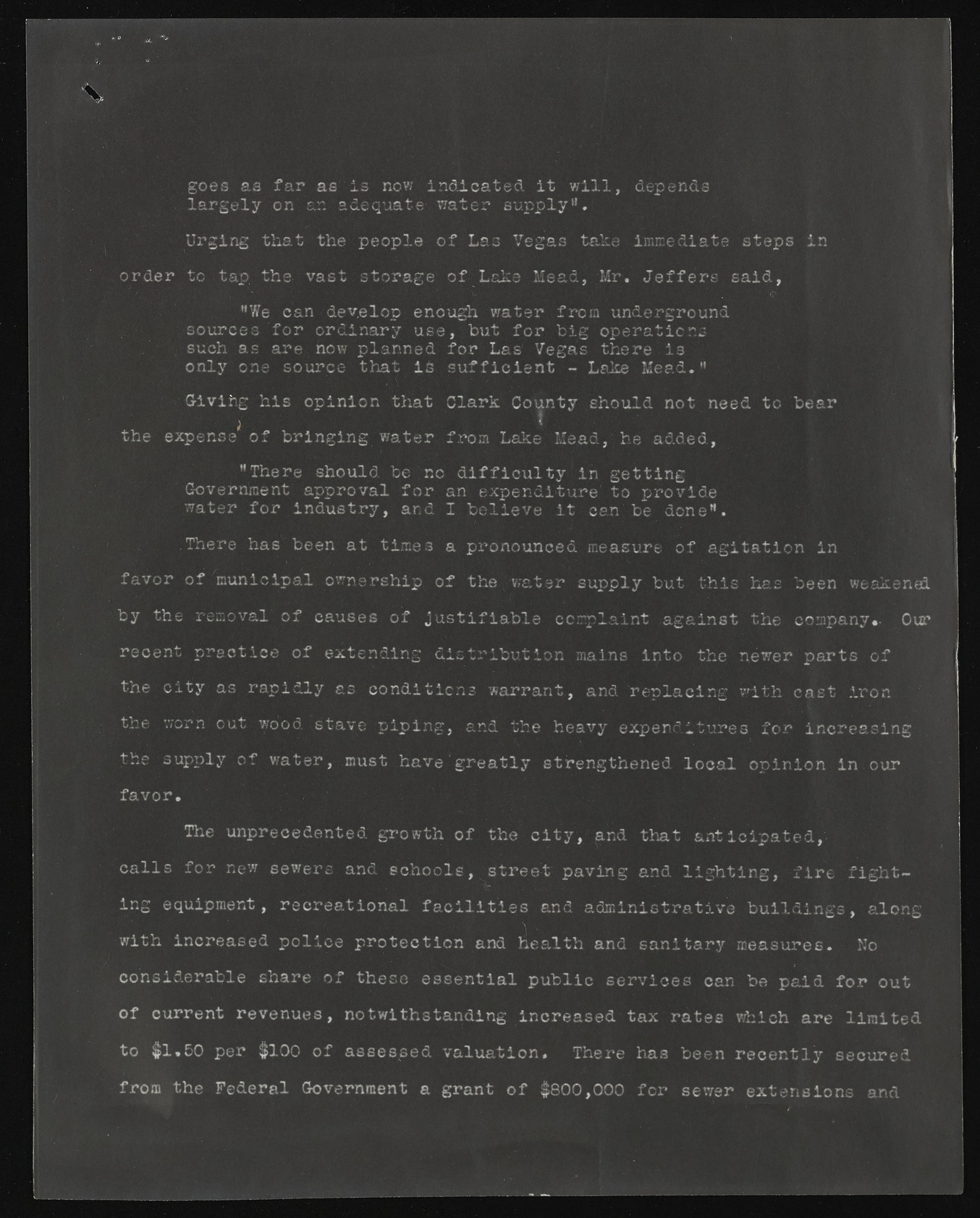Copyright & Fair-use Agreement
UNLV Special Collections provides copies of materials to facilitate private study, scholarship, or research. Material not in the public domain may be used according to fair use of copyrighted materials as defined by copyright law. Please cite us.
Please note that UNLV may not own the copyright to these materials and cannot provide permission to publish or distribute materials when UNLV is not the copyright holder. The user is solely responsible for determining the copyright status of materials and obtaining permission to use material from the copyright holder and for determining whether any permissions relating to any other rights are necessary for the intended use, and for obtaining all required permissions beyond that allowed by fair use.
Read more about our reproduction and use policy.
I agree.Information
Digital ID
Permalink
Details
More Info
Rights
Digital Provenance
Publisher
Transcription
goes as far as is now indicated it will, depends largely on an adequate water supply". Urging that the people of Las Vegas take immediate steps in order to tap. the vast storage of Lake Mead, Mr. Jeffers said, "We can develop enough water from underground sources for ordinary use, but for big operaticns such as are now pl a n n e d for Las Vegas there is only one source that is sufficient - Lake Mead." Giving his opinion that Clark County should not need to bear ' I , * the expense of bringing water from Lake Mead, he added, "There should be no difficulty in getting Government approval for an expenditure to provide water for industry, and I believe it can be done". There has been at time3 a pronounced measure of agitation in favor of municipal ownership of the,water supply but this has been weakened b y the removal of causes of justifiable complaint against the company*- Our recent practice of extending distribution mains into the newer parts of the city as rapidly as conditions warrant, and replacing with cast iron the worn out wood stave piping, and the heavy expenditures for increasing the supply of water, must have greatly strengthened local opinion in our favor. The unprecedented growth of the city, and that anticipated, calls for new sewers and schools, street paving and lighting, fire fighting equipment, recreational facilities and administrative buildings, along with increased police protection and health and sanitary measures. No considerable share of these essential public services can be p a i d for out of current revenues, notwithstanding increased tax rates which are limited to $1.50 per $100 of assessed valuation. There has been recently secured from the Federal Government a grant of $800,000 for sewer extensions and

